
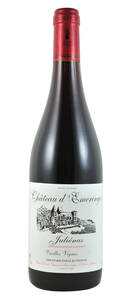

We suspect Julius Caesar was the first to cultivate vines on this hill in the north of the Beaujolais, and we owe it all to him. The wine, exclusively red, is made of black gamay only, like some of the neighbouring appellations. There are four communes in the Beaujolais, 580 hectares, each of which produces between 58 and 63 hectolitres per year. Les Grappes offers you bottles of this rare wine for your greatest pleasure!








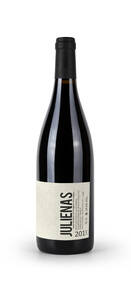


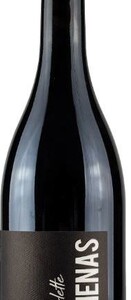

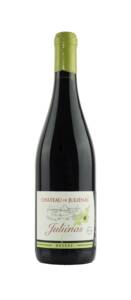


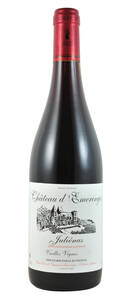


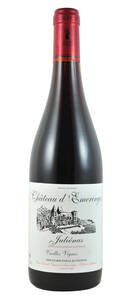

The soils are granite at higher altitudes and clayey further downstream and oceanic or continental climate influences depending on the season. It should be drunk within 3 to 7 years. Time causes the wine to lose its plum colour of the early days, and makes it darker. The nose is distinguished by mineral and spicy aromas. The relative acidity of the wine balances a tannic power. Time refines its rustic side.
The AOC Juliénas refers to the Beaujolais wine-growing area. The appellation covers the northern end of the Rhône department as well as the borders of the Saône-et-Loire and the Mâconnais vineyards. Its history, like its production, is worth a visit.
Juliénas has been recognised as an AOC since March 11, 1938. A large part of the vineyard is located in the Rhône. The rest is located in the Saône-et-Loire. The appellation includes the communes of Juliénas, Jullié (Rhône), Pruzilly (Saône-et-Loire) and Émeringes.
More precisely, the production area is located on the south and south-west faces of Mont de Bessay. As a reminder, this is the last hill in the Beaujolais, near the limits of the Mâconnais. Historically, the place would have been named after Julius Caesar himself.
The Roman emperor and his legions would have occupied this part of France and would have been at the origin of grape growing in the region. Thus, the AOC would have been one of the first vineyards of the Beaujolais. It would have grown during the Gallo-Roman era.
Juliénas wines are produced in the heights as the vineyards are located between 250 and 470 meters above sea level. The fame of the appellation's drinks comes from the surrounding soils. They are composed of granite and alluvium. The vines are planted on poor and stony land.
As a result, the vineyards have a low yield. However, this geographical particularity gives rich and concentrated grapes. These are transformed into wines with character and structure. Very harmonious, they can be kept perfectly for 10 years.
Juliénas wines are only reds. However, they come in various varieties. This is due to the different vineyard exposures and the presence of microclimates.
When buying Juliénas wines, you must take into account their characteristics in order to fully appreciate them. During the first few months, they are recognizable by their purplish colour. Later on, this colour fades to give place to a darker one.
The scents of the Julienas are complex. Smells of flowers and fruits such as raspberry, blackcurrant and redcurrant are intertwined. Some wines even have aromas of vine peach. However, all the wines of the appellation have distinctive notes of minerals and spices.
When you taste it, Juliénas wine will surprise you with its personality. The richness of its tannin is counterbalanced by a characteristic nervousness, which gives it an appreciable rustic side.
The Domaine du Penlois opens its doors to you. You will find it in Lancié, in the heart of the Beaujolais Crus. During your tour of the estate, you will discover how the wines are processed to make various drinks, including the Juliénas appellation.
To learn all about this AOC, visit Alain Farges' vineyard. The owner will be happy to explain his different techniques to obtain Juliénas wines.
During your visits, you will learn how to recognize the emblematic wines of the appellation. In the wineries, you will also be able to buy Juliénas wines. And don't hesitate to ask the winemakers for advice on the best food and wine pairings.
You will note that the drinks of the appellation go perfectly with red meat and game. They also go well with cheeses such as neufchâtel. Here are a few ideas of dishes to drink with Juliénas wines. In winter, treat yourself to a good red wine served with a rabbit stew. Throughout the year, enjoy eggs in a "meurette" with this drink. Finally, you can marry Juliénas reds with a coq au vin or poultry in sauce.
